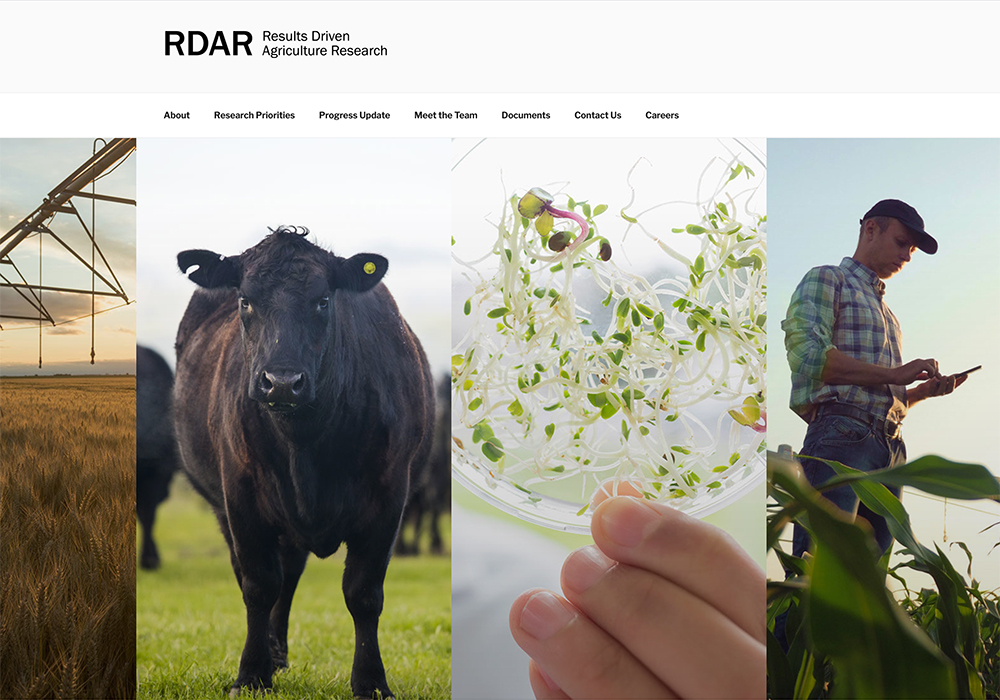Productivity, profitability and competitiveness top the list of priorities for future agricultural research in Alberta.
Last week, the Results Driven Agriculture Research (RDAR) entity released its list of four focus areas for research that were determined through consultation with producers, industry, academia and applied research organizations.
The other three are: sustainable and responsible agriculture; market demands including food safety, quality, value-added products and diversification; and extension and knowledge transfer.
Those priorities run the gamut of possibility but getting stakeholders involved in setting priorities, rather than having them determined by government, was an important goal, said RDAR chair David Chalack.
Read Also

Farming Smarter receives financial boost from Alberta government for potato research
Farming Smarter near Lethbridge got a boost to its research equipment, thanks to the Alberta government’s increase in funding for research associations.
“The intention wasn’t for it to be so broad that there was no focus but it was certainly a strong signal from the producers and our stakeholders who form this advisory committee of 50 people, who we engaged to give us advice,” said Chalack.
“Those priorities actually demonstrate the expanse of agriculture, just how broadly it touches people. If you eat, you’re involved in agriculture, so that means everybody.”
RDAR is a non-profit organization mandated by government to consult with Alberta producers on research priorities and goals. It has been allocated $37 million per year, which it will distribute to those undertaking projects that fit the priorities.
Chalack said the first call for research proposals will go out this month and initial funds are expected to be allocated in the first quarter of 2021.
“We are going to award research projects based on merit. Part of that merit is, how can the findings be incorporated to enhance the business practices and profitability and sustainability of producers? That’s one thing, but secondly, is there some cross-pollination between sectors?”
As an example, research on barley agronomy would also benefit the feedlot sector, he said.
The NDP government of 2015-19 moved agricultural research fully into the government department, dissolving the Alberta Livestock and Meat Agency (ALMA) and the Alberta Crop Industry Development Fund (ACIDF).
The result was confusion about research priorities and lack of transparency in how research funds were spent, said RDAR co-chair Tom Steve, who is also executive director of the Alberta wheat and barley commissions.
“The previous government started moving in the direction of a heavy focus on sustainability, public trust and climate change as their main research drivers and as industry groups… we said, well, where is the focus on productivity and competitiveness? In the view of the previous government, that was less of an emphasis.”
When the UCP government in March directed establishment of RDAR, it was designed to decentralize decision-making on agricultural research and allow producers and industry to decide its direction.
“The big change that we’re seeing is that, in the past or at least in the last few years, there has been no clear indication what those government research dollars would go into and as commissions we were kind of guessing what they would fund,” said Steve.
“Now, I believe there will be more clarity in terms of what the research priorities are and what the criteria will be.”
The provincial government eliminated 51 agriculture positions in December 2019 and gave notice of plans to eliminate another 277 this year. However, the pandemic has delayed those plans at least twice.
When the axe falls, it will further reduce the number of researchers that once undertook agricultural projects.
Government announcements last week showed some researchers have already shifted to academic roles, thus preserving the benefits of their expertise for future agricultural research.
For others, it has been a protracted period of uncertainty, with some describing their roles as “the walking dead” if they suspect they are on the list of planned cuts.
Chalack said funding to Alberta colleges and universities will provide a landing spot for some.
“I think for the key research programs and the key researchers, they’re landing on their feet and have a great future here,” he said.
Steve acknowledged there will be some loss of talent but said changes to Alberta Agriculture were inevitable.
“The Alberta Agriculture ministry was the only ministry in Canada that both funded research and had internal research capability and the question is, can they do both? And I think the conclusion of the government is that there has to be a focus on funding as opposed to the doing of the research.
“Unfortunately, that has an impact on people who have been performing in roles for many years and performing great service to farmers. But I think there are certain choices that have to be made.”



















